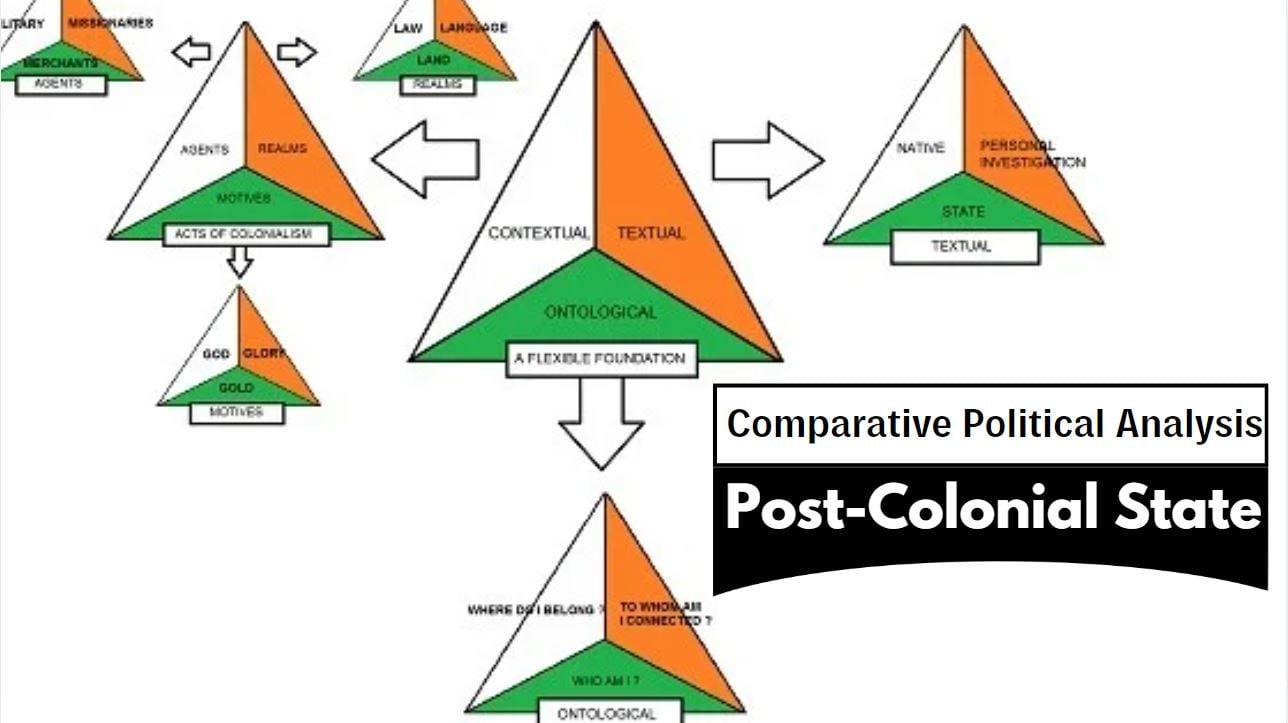Post-Colonial States – A Comparative Political Analysis
The post-colonial state represents phase in global politics, emerging after the end of colonial rule. This period is marked by struggles for identity, sovereignty, and effective governance.
Historical Context
The emergence of post-colonial states primarily occurred after World War II.
- Decolonization Movements – These movements gained momentum across Asia, Africa, and the Caribbean.
- Key Events –
- Indian Independence in 1947 marked milestone.
- Numerous African nations gained independence from colonial powers between the 1950s and 1970s.
The historical backdrop of these states is vital for understanding their current political and social dynamics.
Characteristics of Post-Colonial States
Post-colonial states often exhibit distinct characteristics.
- Political Instability – Many nations experience frequent government changes, coups, and civil wars.
- Economic Dependency – There is a reliance on former colonial powers and global markets.
- Cultural Hybridity – Indigenous cultures blend with colonial influences, creating unique identities.
- Identity Crisis – National identity struggles and ethnic divisions are prevalent.
These characteristics shape the political landscape and societal interactions within these nations.
Theoretical Perspectives
Several theoretical frameworks help explain the dynamics of post-colonial states.
- Post-Colonial Theory – Focuses on the legacy of colonialism and its ongoing impact on identity and power structures.
- Dependency Theory – Addresses the economic challenges faced due to historical exploitation by colonial powers.
- World-Systems Theory – Analyses the position of post-colonial states within the global economic system.
These theories provide critical vital information about the socio-political challenges that post-colonial states encounter.
Governance and State-Building
Establishing effective governance remains a challenge for post-colonial states.
- Legitimacy Issues – Many governments struggle to establish authority and gain public trust.
- Role of International Organisations – Entities like the UN and IMF play roles in state-building efforts.
Governance challenges often hinder development and stability in these nations.
Economic Development
Economic growth strategies vary among post-colonial states.
- Import Substitution – Some countries focus on reducing dependency on foreign goods.
- Export-Led Growth – Others aim to boost exports to enhance economic performance.
Globalisation has also impacted these economies, often complicating their development paths.
Social Issues
Post-colonial states face numerous social challenges.
- Ethnic and Religious Conflicts – Many nations experience tensions stemming from colonial divisions.
- Gender Issues – The role of women is critical in post-colonial societies, often facing systemic challenges.
- Education – Literacy and education are vital tools for empowerment and societal advancement.
Addressing these social issues is essential for achieving stability and progress.
Case Studies
Examining specific countries provides insight into the complexities of post-colonial states.
| Country | Key Issues |
|---|---|
| India | Democratic governance, economic liberalisation, social challenges. |
| Nigeria | Ethnic tensions, oil dependency, corruption. |
| South Africa | Apartheid legacy, reconciliation, nation-building. |
These case studies illustrate the diverse experiences of post-colonial states.
International Relations
Post-colonial states navigate complex international landscapes.
- Global Arena – Many participate in movements like the Non-Aligned Movement.
- Neo-Colonialism – This phenomenon raises concerns about sovereignty and independence.
- Regional Organisations – Groups such as the African Union and ASEAN play crucial roles in encouraging cooperation.
International relations influence the development trajectories of these nations.
Critiques of Post-Colonial States
Post-colonial states face various critiques.
- Neo-Colonialism – Accusations arise regarding continued foreign influence in domestic affairs.
- Corruption – Internal governance failures are prevalent, undermining development.
- Leadership Effectiveness – The debate continues over the capabilities of post-colonial leaders.
These critiques highlight the ongoing challenges faced by post-colonial states.
Future Prospects
The future of post-colonial states is shaped by several trends.
- Democratisation – Many nations are experiencing movements towards more democratic governance.
- Technology Impact – Advances in technology are transforming economies and societies.
- Environmental Challenges – Sustainable development is becoming crucial in policy discussions.


